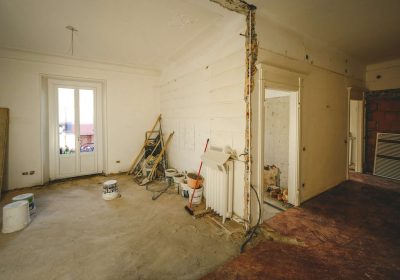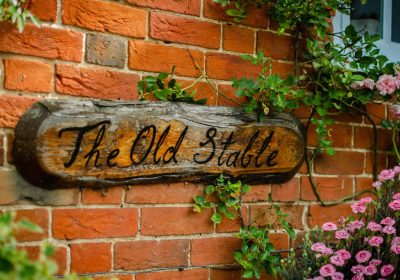Insurance Tips For Homeowners
Purchasing home insurance is a critical step in safeguarding your most valuable asset. However, many homeowners unknowingly make mistakes that can lead to inadequate coverage, unexpected expenses, or complications during claims. Avoiding these pitfalls can provide peace of mind and financial security. Here are ten common mistakes homeowners make when buying insurance and how you can steer clear of them.

1. Underestimating the Value of Your Home
One of the most significant errors homeowners make is underestimating the cost of rebuilding their home. Replacement cost isn’t the same as market value. Ensure your policy reflects the true cost of materials, labour, and any unique architectural features. Speak with an insurance professional to get an accurate estimate and avoid being underinsured.
2. Ignoring Coverage for Natural Disasters
Standard home insurance policies often exclude coverage for floods, earthquakes, or other natural disasters. Many homeowners assume they’re fully protected, only to face devastating losses when these events occur. Evaluate your risks based on your location and consider adding riders or separate policies for these disasters.
3. Choosing the Cheapest Policy
While it’s tempting to cut costs by opting for the cheapest policy, this decision can backfire. Inadequate coverage or high deductibles might leave you vulnerable in the event of a claim. Balance affordability with comprehensive coverage to ensure you’re fully protected.
4. Overlooking Liability Coverage
Home insurance isn’t just about protecting your property; it also includes liability protection. This coverage shields you from lawsuits if someone gets injured on your property. Many homeowners underestimate their liability risks and opt for minimum coverage. Consider increasing liability limits or purchasing an umbrella policy for added security.
5. Neglecting Personal Property Inventory
Failing to create an inventory of your belongings can lead to disputes and reduced payouts during claims. Document your possessions with photos, videos, and receipts. Update your inventory regularly, especially after significant purchases or renovations.
6. Not Understanding Policy Exclusions
Every policy has exclusions, and not knowing what they are can lead to unpleasant surprises. Review your policy carefully to understand what is and isn’t covered. Don’t hesitate to ask your insurer for clarification if something is unclear.
7. Forgetting About Home Improvements
Renovations and upgrades can increase your home’s value but might not be covered unless you update your policy. Notify your insurer about significant changes, such as adding a pool, finishing a basement, or installing high-end appliances.
8. Not Shopping Around for the Best Policy
Loyalty to one insurer can be costly. Insurance rates and coverage options vary widely between providers. Compare quotes from multiple insurers and look for a policy that offers the best value for your needs.
9. Failing to Reassess Coverage Needs Regularly
Life changes, such as marriage, children, or acquiring valuable assets, can impact your insurance needs. Review your policy annually to ensure it aligns with your current circumstances and provides adequate protection.
10. Skipping Professional Assistance During Claims
Navigating an insurance claim can be daunting, especially during stressful situations like property damage. Many homeowners accept the insurer’s initial assessment without question, potentially settling for less than they’re entitled to.
This is where independent loss adjusters or loss assessors come into play. These professionals work on your behalf, not the insurer’s, to evaluate the damage and negotiate fair compensation. Their expertise can help ensure you receive the full benefits of your policy, providing invaluable support during the claims process.

How Loss Assessors Can Help with Claims
When disaster strikes, filing an insurance claim can feel overwhelming. From navigating complex paperwork to understanding policy jargon, the process often leaves homeowners frustrated and uncertain. Independent loss adjusters or loss assessors offer a solution to these challenges.
Key Benefits of Hiring a Loss Assessor:
Expertise in Policy Interpretation:
Loss assessors have a deep understanding of insurance policies and can identify coverages you may have overlooked.
Accurate Damage Assessment:
They conduct thorough inspections to ensure all damages are accounted for, preventing underreporting.
Negotiation with Insurers:
Acting as your advocate, they negotiate with the insurer to secure a fair settlement.
Time-Saving:
They handle the administrative burden, allowing you to focus on restoring your home and life.
Stress Reduction:
With an expert by your side, you gain peace of mind knowing your claim is in capable hands.
Hiring a loss assessor can make a significant difference, particularly for complex claims or large-scale losses.
Final Thoughts
Avoiding common mistakes when buying home insurance can save you from financial hardship and stress. Take the time to research, understand your policy, and seek professional advice when needed. If the unexpected happens, remember that independent loss assessors can be your ally in navigating the claims process.
By being proactive and informed, you’ll ensure your home and belongings are adequately protected, providing you with security and peace of mind for years to come.



